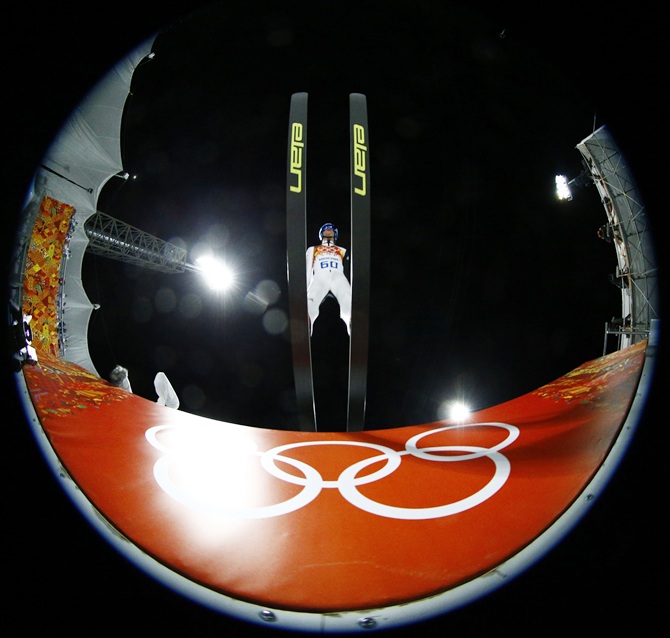
A relaxed Russian President Vladimir Putin dropped in on the US Olympic team in Sochi on Friday, sipping red wine and basking in the praise of what organisers said had been a "truly great" Winter Games so far.
Hosting a successful Games would go a long way to deciding Putin's legacy, and the huge price tag, which some put as high as a record $51 billion, underlines how important it is to him and his country.
Global criticism of a Russian law banning the promotion of gay propaganda among minors and threat of an Islamist militant attack overshadowed the run-up to the February 7-23 Games.
US President Barack Obama decided not to come to Sochi and, after criticism of Putin's stance on gay rights, sent a delegation including gay officials.

But the negativity has melted away as thrilling sporting action has grabbed the headlines, while Putin put aside strained relations with Washington to chat to the American team.
The conversation soon turned to Russia's much-anticipated men's ice hockey match against the United States on Saturday.
"Of course we'll be supporting our guys," Putin could be heard saying on state television during the previously unannounced meeting. He also heaped praise on US athletes, who sit equal fourth in the medals table.
"What I like in you is that you have strong competitors in almost every discipline, in almost every event you fight for medals," he said.
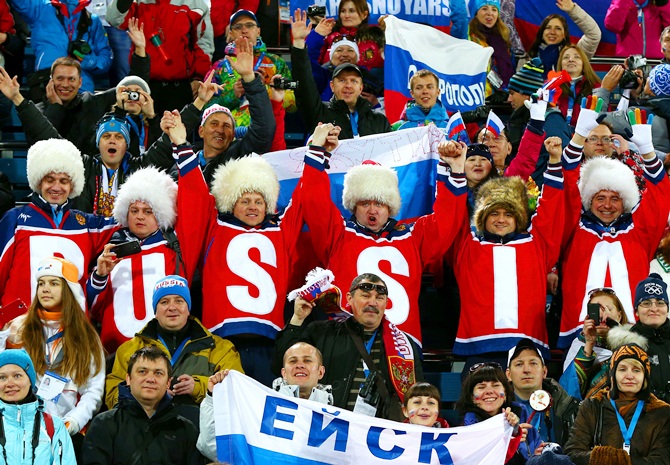
Sochi Olympics chief Dmitry Chernyshenko said that organisers were "modestly proud" of the Games, which hit the halfway stage on Saturday.
"But we are not relaxing," he said. "There are still many things to do until the end of the Games and the most exciting competitions are ahead."
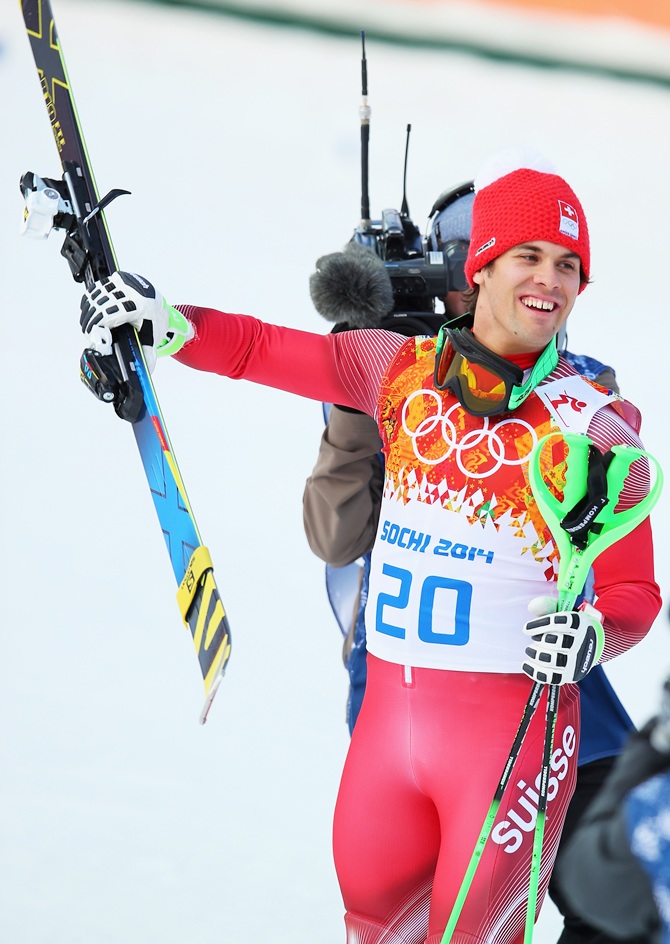
Hours after he spoke there was another shock in the Caucasus mountains on the seventh full day of competition, with Swiss Sandro Viletta ripping up the form book to win the men's super combined race.
And, as another cloudless day of temperatures reaching 14 degrees Celsius softened the snow, compatriot Dario Cologna won his second gold in Sochi in the cross-country 15km classic race.
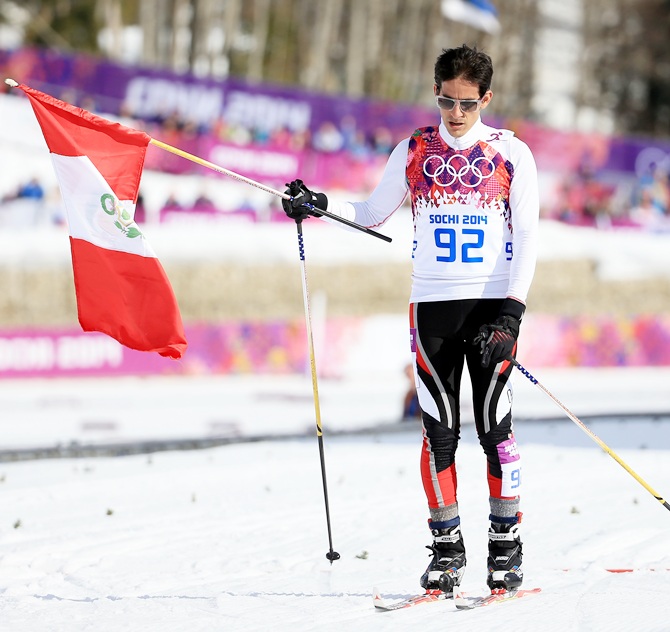
There was an unlikely hero in the shape of 43-year-old Roberto Carcelen of Peru, who finished last but received a tremendous reception from the crowd as he crossed the line.
He was met by Cologna, who had waited nearly half an hour for him to finish.
"I am proud that I have managed to qualify for two Olympics and I hope it will inspire Peruvian children to take up skiing," Carcelen said. "This was the last race of my career. I am retiring.
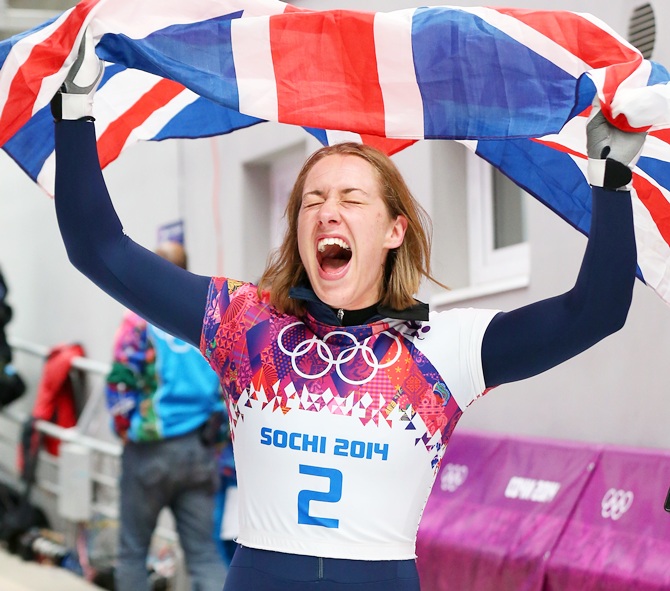
Britain won their first gold of the Games when Lizzy Yarnold triumphed in the women's skeleton, emulating compatriot and 2010 champion Amy Williams - who she rents a house from in England.
Darya Domracheva of Belarus became a double Sochi winner when she blew the opposition away in the biathlon 15km individual event.
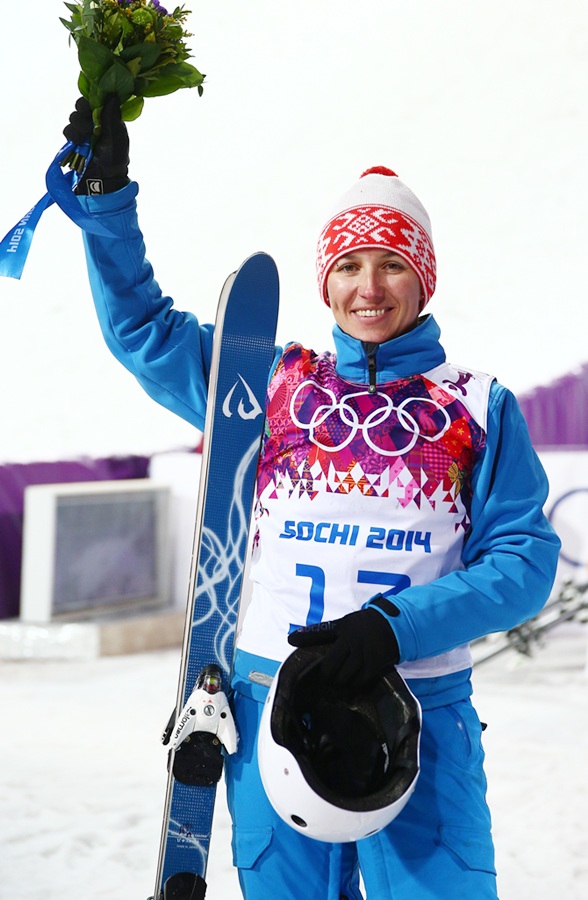
There was more gold for Belarus, and another upset, later in the day when Alla Tsuper won the women's freestyle skiing aerials event.
That victory put Belarus, in seventh, one place above Russia in the medals table. Switzerland jumped to second behind Germany, who have seven golds.
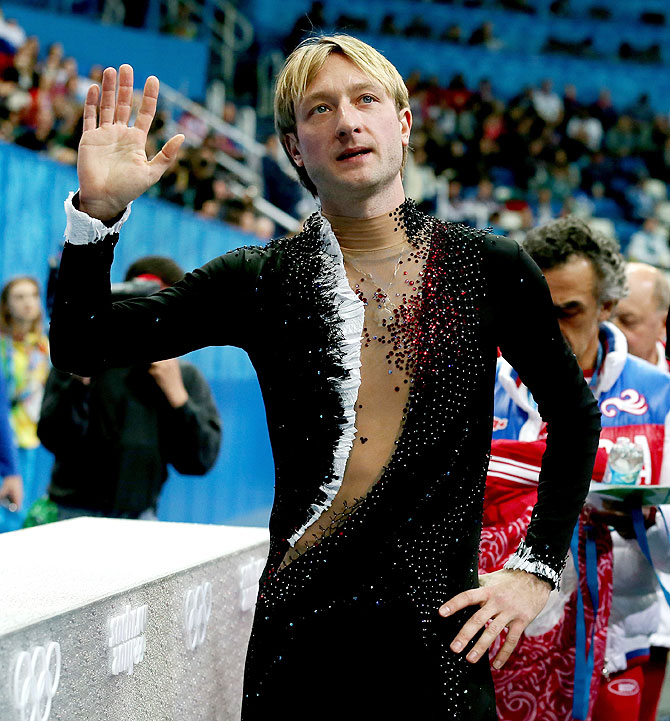
Russia have just two, and there was scant chance of adding to that tally on Friday after flamboyant figure skater Yevgeny Plushenko stunned the skating world by withdrawing from the men's individual event late on Thursday with an injury.
Both the host nation's golds have come in figure skating, and the sound of a packed IcebergSkatingPalace roaring on local athletes has been one of the highlights of the Games.
Plushenko may not have won anyway - Japanese teenager Yuzuru Hanyu became the first Asian to win the Olympic men's figure skating title - but his retirement once again invited questions over whether the 31-year-old should have been at the Games at all.
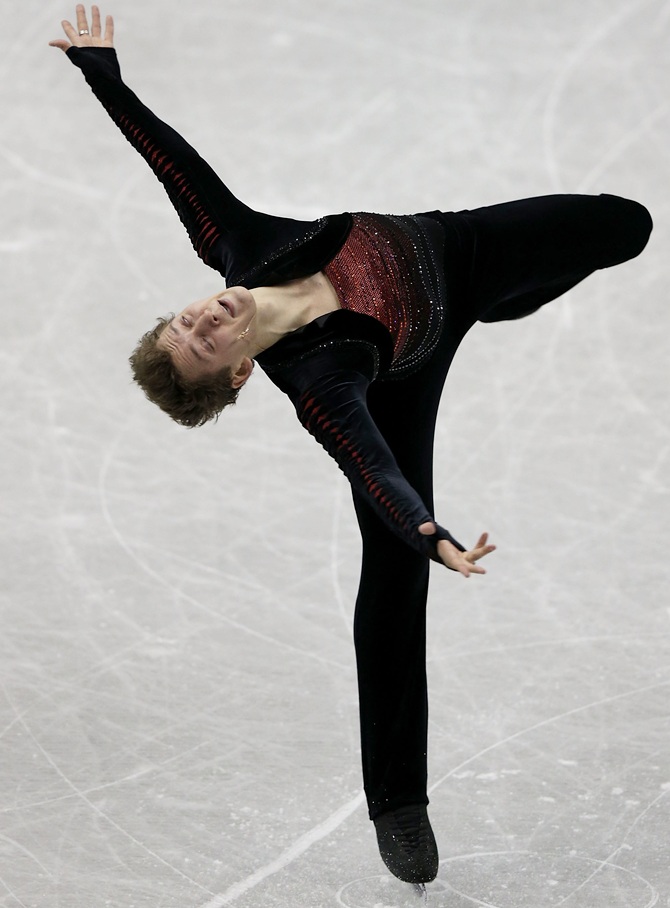
Many believe that honour should have gone to 18-year-old Maxim Kovtun, who beat Plushenko in the Russian nationals, but his older rival controversially secured his Olympic ticket following a secret skate test.
The issue was of sufficient importance to be debated in the State Duma parliament in Moscow.
Fiery opposition lawmaker Vladimir Zhirinovsky called Plushenko "dishonourable", and added: "Maxim Kovtun is shoved aside and this invalid has brought shame upon us."
But Sergei Neverov, a member of the ruling United Russia party which is loyal to Putin, disagreed.
"We all regret (what happened), but that is sport. We are all proud of him... (we have) only words of thanks for his contribution to the gold medal."

The one event the hosts would love to win more than any other is the men's ice hockey.
On Saturday the Russians meet the United States in a mouthwatering qualifying game that will bring memories of the 1980 "Miracle on Ice" flooding back.
Thirty-four years ago at the Lake Placid Games, a group of American college players beat the then Soviet Union's "Big Red Machine" 4-3 in a mismatch of David and Goliath proportions en route to a highly unlikely gold.